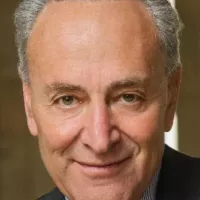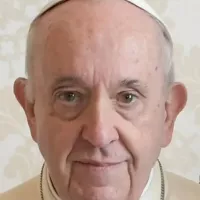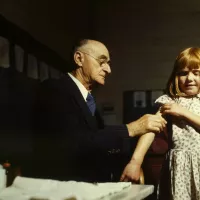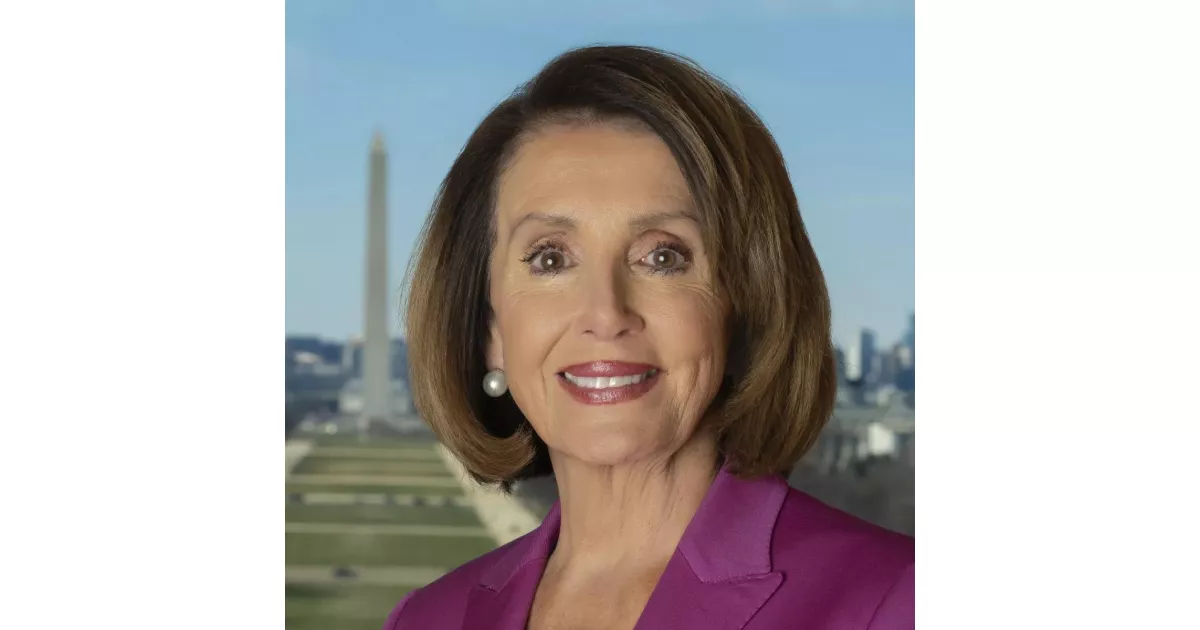Public opinion and media debates around Nancy Pelosi—discover key moments of controversy.
Nancy Pelosi is a prominent American politician, notably serving as the 52nd Speaker of the House of Representatives twice (2007-2011 and 2019-2023). As a Democrat representing California's 11th district since 1987, she made history as the first female Speaker and the first woman to lead a major party in Congress, heading House Democrats for two decades. Her long tenure as a House leader is second only to Sam Rayburn. She remains a significant figure in American politics and the dean of California's congressional delegation.
1991: Pelosi Opposes U.S. Intervention in Gulf War
In 1991, Nancy Pelosi opposed U.S. intervention in the Gulf War.
2001: CIA Misleading Congress
In 2001, CIA Director Leon Panetta had asserted that the CIA misled Congress for a number of years.
2002: Briefing on Enhanced Interrogation Techniques
In 2002, as the ranking member of the House Intelligence Committee, Nancy Pelosi was briefed on the use of enhanced interrogation techniques, including waterboarding, on Abu Zubaydah. Following the briefing, Pelosi stated she was assured by CIA and Department of Justice lawyers that the methods were legal.
2003: Support for Harman's Letter to CIA
In early 2003, Nancy Pelosi supported objections raised by Democratic colleague Jane Harman in a letter to the CIA.
2004: House Democrats considered impeachment proceedings against Bush
Following Bush's reelection in 2004, some House Democrats considered impeachment proceedings against him, alleging he misled Congress about weapons of mass destruction in Iraq and violated civil liberties with warrantless wiretaps.
2006: Republican Advertisements Assail Pelosi
Leading up to the 2006 elections, Republicans began running advertisements attacking Nancy Pelosi to taint public perception of her.
April 2007: Pelosi Visits Syria
In April 2007, Nancy Pelosi visited Syria, meeting with Foreign Minister Walid Muallem, Vice President Farouk al-Sharaa, and President Bashar al-Assad. This visit occurred despite President Bush's efforts to isolate Syria due to concerns about militants crossing into Iraq and the country's support for Hezbollah and Hamas. During her visit in April 2007, she conveyed a message of peace from Israeli Prime Minister Ehud Olmert and toured Al-Hamidiyah Souq and the Umayyad Mosque.
May 2007: Pelosi Scolds Colombian President Álvaro Uribe
In May 2007, Nancy Pelosi publicly scolded Colombian President Álvaro Uribe during his state visit to America. Pelosi met with Uribe and then released a statement expressing concerns about alleged links between paramilitary groups and Colombian government officials. She also opposed the Colombian free-trade agreement.
October 2007: Pelosi Pledged to Bring Armenian Genocide Resolution to Vote
In mid-October 2007, Pelosi pledged to bring a resolution labeling the 1915 killing of Armenians by Ottoman Turks as genocide to a vote, following its passage in the House Foreign Affairs Committee. This prompted warnings from President Bush and criticism from Turkey. After House support weakened, the measure's sponsors withdrew their call for a vote, and in late October 2007, Pelosi agreed to set the matter aside.
2007: Protest against interrogation techniques
In 2007, Nancy Pelosi's office said that she had protested the use of enhanced interrogation techniques at the time they were being used.
2008: Pelosi Opposes Embargo on Cuba
In 2008, Nancy Pelosi stated her opposition to the embargo on Cuba. She expressed that the embargo hadn't been successful and supported removing travel bans to allow for more people-to-people exchanges with Cuba.
2008: Rebuke by Archbishop Donald Wuerl
In 2008, Nancy Pelosi was rebuked by Archbishop Donald Wuerl of Washington, D.C., for comments she made concerning Church teaching on abortion and when human life begins.
March 2009: Judicial Watch obtains emails regarding Pelosi's use of USAF aircraft
In March 2009, Judicial Watch obtained emails from Pelosi's staff requesting the United States Air Force (USAF) provide a Boeing 757 for her taxpayer-funded travel. Pelosi responded that the policy, initiated by President Bush for security reasons after 9/11, was also used by previous Speaker Dennis Hastert, and the Sergeant at Arms requested a plane capable of non-stop flight due to security.
April 2009: Denial of Knowledge of Waterboarding
In April 2009, during a press conference, Nancy Pelosi stated that she was not informed that waterboarding or other enhanced interrogation techniques were being used during briefings, but that she was told the Office of Legislative Counsel had opinions that they could be used.
June 26, 2009: Allegations of CIA Misleading Congress
On June 26, 2009, Democratic lawmakers in the House signed a letter alleging that CIA Director Leon Panetta had asserted that the CIA misled Congress for a number of years spanning back to 2001.
November 2010: Politico Writer Called Pelosi's Record "Mixed"
In November 2010, after Democrats lost their House majority, a Politico writer called Nancy Pelosi's record as speaker "mixed". While acknowledging her power, the writer noted her poor approval rating and the negative impact of her legislative agenda, such as the Patient Protection and Affordable Care Act, on the party's electoral losses.
2010: Republican Ads Against Pelosi in 2010 Cycle
During the 2010 election cycle, Republicans spent more than $65 million on ads that negatively characterized or invoked Nancy Pelosi.
2010: Republicans demonized Pelosi in advertisements
Leading up to the 2010 House elections, the Republican National Committee used a "Fire Pelosi" slogan and spent $65 million on anti-Pelosi advertisements. This was seen as a factor in her unpopularity.
November 2011: 60 Minutes Alleged Pelosi Made Money on the Stock Market
In November 2011, 60 Minutes alleged that Nancy Pelosi and other members of Congress used information from closed sessions to make money on the stock market, citing her Visa Inc. stock purchases. Pelosi denied the allegations and called the report "a right-wing smear".
November 2011: Pelosi Denied Allegations of Insider Trading
In November 2011, Nancy Pelosi was accused of using congressional knowledge for stock market gains. The allegations, reported by '60 Minutes', focused on purchases of Visa Inc. stock. Pelosi denied the claims, labeling them as a "right-wing smear".
2012: STOCK Act of 2012
In 2024, critics argue that members of Congress, including Pelosi, may have access to non-public information that could benefit personal investments, despite the STOCK Act of 2012, which prohibits insider trading by lawmakers.
2015: Pelosi Supports Obama's Cuban Thaw
In 2015, Nancy Pelosi supported President Obama's Cuban Thaw, a rapprochement between the U.S. and the Castro regime in Cuba. She also visited Havana for meetings with high-level officials.
2016: Pelosi Argues Against Bills Blocking Iran's Access to the Dollar
In 2016, Nancy Pelosi argued against two bills that, if enacted, would block Iran's access to the dollar and impose sanctions for its ballistic missile program. She stated that regardless of support for the Joint Comprehensive Plan of Action (JCPOA), it was agreed that Iran must not possess a nuclear weapon, and at that time, the JCPOA was the best way to achieve this critical goal.
2016: Pelosi references Russian Interference in 2016 Election
In December 2017, Nancy Pelosi wrote a letter to Speaker Paul Ryan advocating for the continued House investigation into Russian interference in the 2016 election, stating that Americans deserved a comprehensive and fair investigation into Russia's attack and that America's democracy and national security were at stake. She cited the need to fully investigate Russia's assault on election systems to prevent future foreign attacks.
January 2017: Pelosi Votes Against Resolution Condemning UN Security Council Resolution 2334
In January 2017, Nancy Pelosi voted against a House resolution that would condemn the UN Security Council Resolution 2334, which called Israeli settlement building in the occupied Palestinian territories in the West Bank a "flagrant violation" of international law and a major obstacle to peace. She also condemned the Boycott, Divestment, and Sanctions (BDS) movement targeting Israel.
June 9, 2017: Pelosi criticizes Trump's tweets and fitness for office
During a news conference on June 9, 2017, Pelosi responded to a reporter's question about President Donald Trump's tweets regarding former FBI director James Comey, stating that no one at the White House seemed courageous enough to tell Trump that his tweets were beneath the dignity of the presidency and that she was worried about his fitness for office.
June 2017: Pelosi's Leadership Questioned After Special Election Losses
In June 2017, after Democrats lost four consecutive special elections in the House of Representatives, Nancy Pelosi's leadership was again called into question, with some House Democrats discussing potential new leadership and others publicly calling for it. Pelosi defended her leadership, emphasizing her legislative skills and political acumen.
August 2017: Support for Removal of Confederate Monuments
In August 2017, Nancy Pelosi supported Senator Cory Booker's initiative to remove Confederate monuments and memorials from the Capitol Building through legislation.
August 2017: Pelosi Criticizes Trump's Comments on North Korea
In August 2017, following President Trump's warning that North Korea would be met with "fire and fury like the world has never seen" if it made further threats to the United States, Nancy Pelosi said the comments were "recklessly belligerent" and showed a "grave lack of appreciation" for the severity of the North Korean nuclear situation. She also said Trump's rhetoric eroded U.S. credibility.
November 2017: Pelosi Calls for Exhausting Remedies with North Korea
In November 2017, after the Pentagon stated that a ground invasion was the only way to destroy all North Korea's nuclear weapons without concern for missing any, Nancy Pelosi expressed concern about Pyongyang selling nuclear technology to third parties and called for the United States to "exhaust every other remedy".
December 2017: Opposition to Trump's Tax Reform
In December 2017, Nancy Pelosi opposed the tax reform signed by President Trump, calling it one of the worst bills in U.S. history and criticizing its impact on the middle class and national debt.
December 2017: Pelosi Advocates for Continued House Investigation into Russian Interference
In December 2017, Nancy Pelosi wrote a letter to Speaker Paul Ryan advocating for the continued House investigation into Russian interference in the 2016 election, stating that Americans deserved a comprehensive and fair investigation into Russia's attack and that America's democracy and national security were at stake. She cited the need to fully investigate Russia's assault on election systems to prevent future foreign attacks.
2017: Criticism of Confederate Artworks in the Capitol
In 2017, Nancy Pelosi criticized the presence of artworks in the United States Capitol that depicted individuals who supported the Confederacy during the American Civil War, including at least 10 statues in the National Statuary Hall Collection. She noted the difficulty in removing or replacing these statues due to a process requiring the consent of state legislatures and governors.
January 2018: Response to Corporate Bonuses After Tax Cuts
In January 2018, Nancy Pelosi responded to companies crediting tax cuts with allowing them to raise wages and give bonuses, calling the benefits workers received "crumbs" compared to corporate gains.
January 2018: Pelosi criticizes Trump's State of the Union Address and refusal to implement Russian sanctions
In January 2018, Pelosi criticized Trump's State of the Union Address as a performance lacking serious policy ideas for collaboration and questioned his refusal to implement Russian sanctions.
February 2018: Pelosi criticizes Nunes and defends FBI
In February 2018, Nancy Pelosi sent a letter to Speaker Paul Ryan regarding the proposed release of a memo attacking the FBI's investigation into Russian interference in the 2016 United States elections. Pelosi warned that the memo was inaccurate and could threaten national security. She accused Republicans of a "cover-up campaign" to protect Trump and called for Devin Nunes' removal due to "deliberately dishonest actions".
February 2018: Pelosi Accuses Trump of Siding with Putin
In February 2018, after the release of a Republican report alleging surveillance abuses by the Justice Department, Nancy Pelosi accused President Trump of siding with Russian president Vladimir Putin at the expense of preserving intelligence sources and methods.
February 2018: Pelosi criticizes Republicans' "cowering" to gun lobby
In February 2018, following the Stoneman Douglas High School shooting, Pelosi criticized Republicans for "cowering" to the gun lobby, calling it "an assault on our whole country". She urged House Speaker Ryan and Republicans to take action by considering legislation to expand background checks or allow researchers to use federal funds to study gun violence and public health. She also advocated for a special committee on gun violence.
March 2018: Pelosi Urges Trump to Focus on China
In March 2018, before the Trump administration took concrete measures against China, Nancy Pelosi and other Democratic leaders urged President Trump to focus more on China. Pelosi pressed Trump to impose punishments, such as naming China a currency manipulator, stopping China from pressuring U.S. tech companies into giving up intellectual property rights, and taking a strong stand against unfair market barriers in China.
May 2018: Pelosi on Trump's Withdrawal from Iran Nuclear Deal
In May 2018, after President Trump announced his intention to withdraw from the Iran nuclear deal, Nancy Pelosi stated that the decision was an abdication of American leadership and described it as "particularly senseless, disturbing & dangerous".
June 2018: Pelosi on Trump's Praise of Kim Jong-un
In June 2018, after President Trump praised North Korean leader Kim Jong-un, Nancy Pelosi stated, "In his haste to reach an agreement, President Trump elevated North Korea to the level of the United States while preserving the regime's status quo."
August 2018: Pelosi calls for Hunter's resignation
In August 2018, Nancy Pelosi called for Duncan D. Hunter's resignation following his indictment on charges of misusing at least $250,000 in campaign funds. She stated the charges were "evidence of the rampant culture of corruption among Republicans in Washington today".
January 2019: Pelosi Criticizes Trump's Planned Withdrawal from Syria and Afghanistan
In January 2019, Pelosi criticized President Trump's planned withdrawal of U.S. troops from Syria and Afghanistan, calling the announcement a "Christmas gift to Vladimir Putin".
April 2019: Trump vows to defy House subpoenas
In April 2019, President Trump vowed to defy "all" subpoenas from the House and to refuse to allow current or former administration officials to testify before House committees.
May 2019: Pelosi accuses Trump of obstruction of justice and cover-up
In May 2019, after the White House intervened to halt Don McGahn's compliance with a House subpoena, Pelosi accused Trump of obstructing justice and engaging in a cover-up, stating that "Trump is goading us to impeach him."
June 5, 2019: Pelosi says she wants to see Trump in prison
On June 5, 2019, during a meeting with senior Democrats, Pelosi stated, "I don't want to see him impeached, I want to see him in prison," indicating a preference for Trump to lose the 2020 election and then be prosecuted.
September 2019: Pelosi meets with Hong Kong pro-democracy activist Joshua Wong
In September 2019, Nancy Pelosi met with Hong Kong pro-democracy activist Joshua Wong on Capitol Hill. Following this meeting, Chinese media accused Pelosi of "backing and encouraging radical activists".
September 2019: Pelosi announces formal House impeachment inquiry of Trump
In September 2019, following revelations of the Trump–Ukraine scandal, Pelosi announced the beginning of a formal House impeachment inquiry, stating that Trump's actions "seriously violated the Constitution".
October 2019: Pelosi addresses Trump's withdrawal of troops from Syria
In October 2019, Pelosi wrote to Democratic caucus members condemning President Trump's decision to withdraw U.S. troops from Northern Syria, which she described as deserting Kurdish allies to appease Turkey's President Erdoğan. She stated that in October 2019 the decision poses a threat to regional security and sends a dangerous message to Iran, Russia, and U.S. allies. Following that month, she visited Jordan to discuss the Syrian situation and went to Afghanistan to meet with President Ashraf Ghani and chief executive officer Abdullah Abdullah.
December 2019: First Impeachment of President Trump
In December 2019, the House impeached President Donald Trump for the first time during Nancy Pelosi's second speakership.
December 18, 2019: House votes to impeach Trump
On December 18, 2019, the House voted to impeach Trump for abuse of power and obstruction of Congress, making him the third president in U.S. history to be impeached. Pelosi called it tragic but necessary due to Trump's reckless actions.
January 15, 2020: House transmits articles of impeachment to the Senate
On January 15, 2020, the House transmitted the articles of impeachment to the Senate, with Pelosi naming seven Democratic Representatives as House managers to argue the impeachment case against Trump.
February 4, 2020: Pelosi tears up Trump's State of the Union address
On February 4, 2020, at the conclusion of Trump's State of the Union address, Pelosi tore up her official copy of it, stating it was "a courteous thing to do considering the alternatives. It was a such a dirty speech". Trump and other Republicans criticized her for this action.
June 2020: Push for Removal of Confederate Statues and Paintings
In June 2020, following protests over the murder of George Floyd, Nancy Pelosi advocated for the removal of all statues of Confederates from the Capitol and ordered the removal of four paintings of former Confederates in the Capitol Speaker's Gallery on June 18.
September 2020: Pelosi visits hair salon
In early September 2020, Nancy Pelosi visited a hair salon in San Francisco, which was against regulations enforced at that time preventing indoor services. She was criticized for hypocrisy, and Pelosi described the situation as "clearly a setup".
October 8, 2020: Pelosi announces legislation for commission on 25th Amendment use
On October 8, 2020, Pelosi announced that legislation was being introduced in the House of Representatives to advance the creation of a commission to allow the use of the 25th Amendment to the Constitution to intervene and remove Trump from executive duties.
January 2021: Pelosi's San Francisco Home Vandalized
In January 2021, Pelosi's San Francisco home was vandalized with graffiti, messages of "[c]ancel rent", fake blood, and a severed pig's head.
January 2021: Second Impeachment of President Trump
In January 2021, the House impeached President Donald Trump for the second time during Nancy Pelosi's second speakership.
April 2021: Republicans criticize Pelosi over border comments
In April 2021, after southern border crossings peaked, House Republicans criticized Pelosi for saying that immigration under the Biden administration was "on a good path".
June 2021: Pelosi's husband purchases stocks in tech companies
In May and June 2021, Pelosi's husband purchased stocks in tech companies such as Alphabet, Amazon, and Apple, netting a gain of $5.3 million. This occurred even while Speaker Pelosi was working on anti-trust legislation to better regulate the tech industry.
April 7, 2022: Cordileone Communicates Concerns to Pelosi
On April 7, 2022, Archbishop Salvatore Cordileone communicated his concerns to Nancy Pelosi, regarding her support for abortion rights, warning her that if she did not publicly repudiate her advocacy or refrain from referring to her Catholic faith in public and receiving Holy Communion, he would have no choice but to declare that she is not to be admitted to Holy Communion.
May 20, 2022: Pelosi Barred from Receiving Holy Communion in San Francisco
On May 20, 2022, Salvatore Cordileone, archbishop of San Francisco, announced that Pelosi would be barred from receiving Holy Communion because of her support of pro-choice abortion policies.
August 2, 2022: Pelosi Visits Taiwan
On August 2, 2022, Nancy Pelosi visited Taiwan, becoming the highest-ranking U.S. government official to do so in 25 years. Despite discouragement from President Joe Biden, she proceeded with the trip, which was later affirmed by the White House as her right. The visit was supported by Senate Minority Leader Mitch McConnell and 25 Senate Republicans, who issued a joint statement backing her decision. Pelosi's visit heightened tensions between the U.S. and China. During her visit, she met with Taiwanese President Tsai Ing-Wen and praised Taiwan as one of the "freest societies in the world".
August 5, 2022: China Sanctions Pelosi
On August 5, 2022, the Chinese government sanctioned Nancy Pelosi for "seriously interfering in China's internal affairs, undermining China's sovereignty and territorial integrity, trampling on the one-China policy, and threatening the peace and stability of the Taiwan Strait".
2022: Republican Ads Against Pelosi in 2022 Election
During the 2022 election cycle, Republicans ran more than $50 million in ads that negatively characterized or invoked Nancy Pelosi.
2022: Pelosi advises American athletes on the 2022 Winter Olympics in Beijing
In 2022, on the eve of the Winter Olympics in Beijing, Pelosi advised American athletes competing in the Olympics to not risk incurring the anger of the Chinese government, as she viewed them as ruthless.
January 28, 2024: Pelosi Suggests Investigation into Pro-Palestinian Protesters
On January 28, 2024, Nancy Pelosi suggested that some pro-Palestinian protesters calling for a ceasefire in the Gaza war could be connected to Russia and called on the FBI to investigate the possible connection.
April 2024: Pelosi Urges Biden to Reconsider Arms Shipments to Israeli Military
Following the drone strikes on aid workers from World Central Kitchen, in April 2024 Pelosi, along with other Congressional Democrats, urged President Biden in an open letter to reconsider planned arms shipments to the Israeli military.
July 2024: Paul Pelosi Sells Visa Stock Before Antitrust Lawsuit
In July 2024, Pelosi's husband, Paul Pelosi, sold between $500,000 and $1 million worth of Visa stock shortly before the Department of Justice filed an antitrust lawsuit against the company, leading to allegations of potential insider trading. Pelosi's spokesperson stated that she does not own individual stocks and was not involved in her husband's investment decisions.
2024: Pelosi urges Biden to withdraw candidacy
Amid concerns about President Biden's reelection prospects in the 2024 presidential election, Pelosi and other Democratic officials urged him to withdraw his candidacy before the party's National Convention. On July 10, Pelosi said the party encouraged Biden to make the decision because time was running out. He withdrew from the race on July 21 and endorsed Vice President Kamala Harris as the party's presidential nominee.
2024: Scrutiny Over Pelosi Family's Stock Trading
In 2024, Pelosi faced scrutiny over her family's stock trading activities, particularly after reports indicated that her investment portfolio achieved a 54% return, outperforming many hedge funds and the S&P 500.
2025: Hawley Reintroduces the PELOSI Act
In early 2025, Senator Josh Hawley reintroduced the Preventing Elected Leaders from Owning Securities and Investments (PELOSI) Act, following the incident related to Paul Pelosi's stock trading, which intensified bipartisan calls for new legislation banning stock trading by members of Congress and their immediate families.
Mentioned in this timeline

Vladimir Vladimirovich Putin is a Russian politician and former intelligence...

Chuck Schumer is the senior United States Senator from New...

Pope Francis served as the head of the Catholic Church...

Barack Obama the th U S President - was the...
Ukraine is a country in Eastern Europe the second-largest on...

Hillary Diane Rodham Clinton is a prominent American politician lawyer...
Trending
43 minutes ago Pokemon Celebrates 30 Years: A Cultural Phenomenon with Multimillion-Dollar Cards

43 minutes ago Daylight Saving Time 2026: Prepare to set your clocks forward and lose sleep.

43 minutes ago Indiana Investigates CenterPoint Energy Amid Bill Concerns and New Utility Law.

43 minutes ago Galatasaray's Champions League opponent revealed; Liverpool legend comments on Juventus match; Real Madrid faces Man City.

3 hours ago Google Maps to fully function in South Korea after data agreement.

4 hours ago CDC Panel to Discuss COVID-19 Vaccine Injuries Following RFK Jr.'s Meeting
Popular

Jesse Jackson is an American civil rights activist politician and...

Barack Obama the th U S President - was the...

Susan Rice is an American diplomat and public official prominent...

XXXTentacion born Jahseh Dwayne Ricardo Onfroy was a controversial yet...

Michael Joseph Jackson the King of Pop was a highly...

Kashyap Pramod Patel is an American lawyer who became the...
